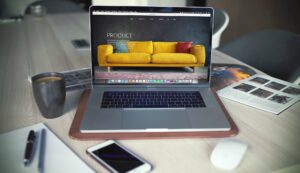If you are unhappy with your high street bank or are curious about what other financial institutions have to offer, you are probably looking at community banks and credit unions in your area. But what’s the difference between the two?
Discover the difference between community banks and credit unions, and learn about each banking institution’s pros and cons to help you decide which one may be for you.
What is the Difference Between a Community Bank and a Credit Union?
Community banks and credit unions are often mentioned in the same breath because both exist to serve specific communities or segments of society. However, there are distinct differences between the two that may make one more suited for you than the other.
But before we dive into the differences between the two, let’s look at each financial institution first.
- A community bank is owned and operated by members of the community it serves, which provides the bank with a deep understanding of its customers’ financial needs.
- A credit union is a member-owned, not-for-profit cooperative banking institution that provides financial services to its members.
Both community banks and credit unions aim to provide a better banking experience than large banks by providing more customer-centric banking services. Moreover, both offer essential banking services, such as checking accounts, savings accounts, and personal loans. However, that is where the similarities end.
Now, let’s look at differences between community lenders and credit unions in more detail.
| Community Banks | Credit Unions |
|---|---|
| Predominantly owned by members of the community they serve | Owned by members of the credit union |
| Private or Public | Private |
| For-Profit | Not-For-Profit |
| Their customers are typically members of the local community where the bank is located | Their customers are individuals who share a “common bond” with the credit union or its members |
| More likely to grant loans to low and moderate-income households | More likely to grant loans to members |
| Deep understanding of its community’s financial needs | Better savings and borrowing rates than high street banks |
| FDIC Insured | NCUA Insured |
As you can see, community banks and credit unions are two very different financial institutions, even though both have a more customer-centric approach than their counterparts from Wall Street.
Community Banks vs. Credit Unions: Pros and Cons
Community banks and credit unions both have unique value propositions, but they also come with their own individual drawbacks.
Let’s look at the pros and cons of banking with a community bank vs a credit union.
Community Banks: Pros & Cons
Community banks typically provide essential banking services to underserved communities, which is why consumers often prefer them over high street banks.
Pros:
- Your bank will understand your financial needs and work closely with you to support you
- Low to moderate-income households can get access to financial services at reasonable rates
- Usually charge lower fees than traditional banks
- Provide branches and ATMs in underserved urban and rural areas
- Lend to individuals and businesses in the local community to boost economic activity
Cons:
- Can often not compete with large banks on savings and borrowing rates
- Typically offer less financial products and services than large banks
Credit Unions: Pros & Cons
Credit unions exist to provide essential financial services to its members, who typically have the same occupation or come from a particular region or community.
Pros:
- Typically provides better savings and loan rates than traditional banks
- Charge lower fees than high street banks
- Understands its members’ financial needs and aims to meet them
Cons:
- Not open to all consumers, only those with a “common bond” with the credit union or its members
- Typically offer less financial products and services than large banks
Community Banks vs. Credit Unions: Who Should You Bank With?
The decision on who you would like to bank with is entirely up to you. The key to choosing who to bank with lies in determining what your needs are.
Some of the questions you should ask yourself before picking a community bank, a credit union or any other banking provider include:
- What financial products and services do I require? Does this provider offer them?
- Do I prefer a digital or an in-person banking experience?
- Do I require an extensive network of ATMs in my area?
- Do I want a high number of bank branches in my local area I can visit?
Answering these questions will help you determine what exactly you are looking for in a banking provider, at which point you can decide what type of lender is right for you.
What’s Next?
Community banks and credit unions both have unique propositions that make them attractive to consumers. If you have made up your mind about which one is right for you, check our list of the best community banks and best credit unions in your area.







